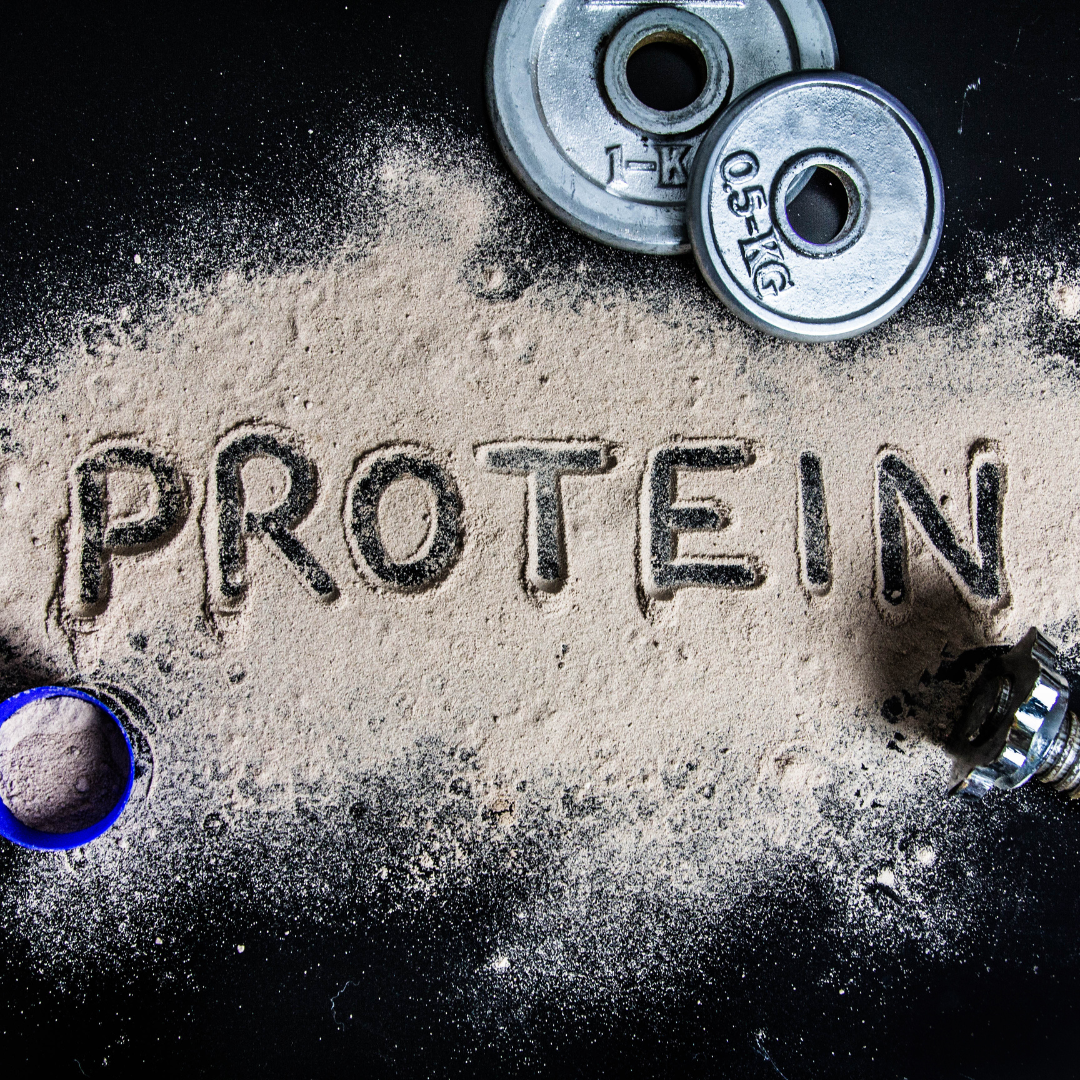
Protein: Beyond Being Just a Macronutrient
Share
In the realm of nutrition, proteins often take center stage as a crucial macronutrient necessary for muscle growth and repair. While this function is undoubtedly essential, the significance of protein extends far beyond mere muscle maintenance. It plays a multifaceted role in the human body, impacting various physiological processes and contributing to overall health in ways that might surprise many.
Unveiling the Versatility of Protein: Beyond Muscle Building
1. Structural Component: Proteins serve as the building blocks of tissues and organs. Collagen, for example, is a protein that provides structural support to skin, bones, tendons, and ligaments. Muscle proteins (like actin and myosin) are essential for muscle contraction and movement.
2. Enzymes and Catalysts: Many enzymes, which are proteins, catalyze biochemical reactions in the body. Enzymes are crucial for processes such as digestion, metabolism of nutrients, and detoxification. Without enzymes, these essential reactions would proceed too slowly to sustain life.
3. Hormones and Signaling: Proteins play a key role in the production of hormones and signaling molecules. Hormones such as insulin (regulates blood sugar levels), growth hormone (stimulates growth and development), and adrenaline (controls the body's fight-or-flight response) are all proteins or peptides.
4. Immune Function: Antibodies are specialized proteins produced by the immune system to identify and neutralize foreign substances like viruses and bacteria. They play a critical role in defending the body against infections and diseases.
5. Transport and Storage: Certain proteins act as carriers, transporting molecules such as oxygen (hemoglobin in red blood cells) and lipids (lipoproteins) throughout the body. Proteins can also serve as storage molecules for essential nutrients and minerals.
6. Fluid Balance: Proteins help maintain fluid balance in the body by exerting osmotic pressure. This is important for regulating blood volume and preventing edema (excess fluid accumulation in tissues).
7. Maintaining pH Balance: Proteins act as buffers, helping to maintain the acid-base balance (pH) of bodily fluids. This is crucial for normal cellular function and overall health.
8. Regulation of Gene Expression: Some proteins act as transcription factors, regulating the expression of genes involved in various cellular processes. They play a role in determining which proteins are synthesized in response to different environmental cues.
9. Energy Source: While not its primary function, proteins can be broken down into amino acids and used as a source of energy when carbohydrates and fats are not available in sufficient amounts.
Harnessing the Power of Protein: Enhancing Your Health Through Diet
A centric diet plan can have various advantages:
1. Metabolic Health
Protein plays a role in regulating blood sugar levels and insulin sensitivity. Including protein-rich foods in meals can help stabilize blood glucose levels, which is beneficial for individuals with diabetes or those at risk of developing insulin resistance.
2. Satiety and Weight Management
Protein is known for its ability to promote feelings of fullness and reduce appetite. Including protein in meals and snacks can help control hunger levels and prevent overeating, which can support weight loss or maintenance efforts. Additionally, the thermic effect of protein (the energy required to digest and metabolize it) is higher compared to carbohydrates and fats, potentially aiding in calorie expenditure.
3. Improved Body Composition
Alongside its role in muscle maintenance, a protein-forward diet can help improve body composition by reducing body fat percentage while preserving lean muscle mass. This is particularly beneficial for individuals aiming to lose weight or achieve a more toned physique.
4. Improved Mood and Cognitive Function
Amino acids from dietary protein are essential precursors for neurotransmitters like serotonin and dopamine, which regulate mood, sleep, and cognitive function. Consuming adequate protein supports brain health and may contribute to improved mood stability, mental clarity, and overall cognitive performance.
5. Sustainable Energy
Protein provides a steady and sustained source of energy throughout the day. Including protein in meals and snacks helps prevent energy crashes and promotes stable blood sugar levels, supporting overall energy levels and productivity.
Dietary guidelines
The Indian Council ff Medical Research recommends that adults (both medn and women) consume about 0.8g protein per kg of body weight, which has also been adopted by Food Safety & Standards Authority of India.
Revealing the amino acid spectrum
Amino acids are the fundamental building blocks of proteins, crucial for countless biological processes in the human body. Understanding the spectrum of amino acids—both essential and non-essential—reveals their diverse roles in maintaining health and supporting bodily functions. Let's delve into the fascinating world of amino acids and their significance:
1. Essential Amino Acids
There are nine essential amino acids that the body cannot produce on its own and must obtain from dietary sources:
- Histidine: Essential for growth and repair of tissues, as well as the production of histamine, a neurotransmitter.
- Isoleucine: Involved in muscle metabolism, immune function, and energy regulation.
- Leucine: Critical for protein synthesis, muscle repair, and growth.
- Lysine: Important for collagen formation, tissue repair, and calcium absorption.
- Methionine: Supports liver health, detoxification, and the production of other amino acids and molecules.
- Phenylalanine: Precursor for neurotransmitters like dopamine, adrenaline, and noradrenaline.
- Threonine: Essential for protein balance, immune function, and intestinal health.
- Tryptophan: Precursor for serotonin, a neurotransmitter that regulates mood and sleep.
- Valine: Essential for muscle metabolism, tissue repair, and energy production.
These amino acids are vital for protein synthesis, tissue repair, and various metabolic functions. They must be obtained through a balanced diet that includes sources such as meat, fish, dairy products, eggs, and plant-based proteins like legumes and quinoa.
2. Non-Essential Amino Acids
The body can synthesize non-essential amino acids from other amino acids or metabolic intermediates. These include:
- Alanine: Important for glucose production and energy metabolism.
- Arginine: Involved in immune function, hormone regulation, and wound healing.
- Asparagine: Supports the central nervous system and helps maintain balance in the body's fluid and electrolyte levels.
- Aspartic Acid: Plays a role in energy production, neurotransmitter synthesis, and DNA synthesis.
- Glutamic Acid: Acts as a neurotransmitter in the brain and supports cognitive function.
- Glycine: Important for synthesizing proteins, bile acids, and other molecules in the body.
- Proline: Essential for collagen formation, joint health, and wound healing.
- Serine: Involved in the synthesis of neurotransmitters, proteins, and cell membranes.
- Tyrosine: Precursor for neurotransmitters like dopamine, adrenaline, and thyroid hormones.
These amino acids contribute to various physiological processes, including neurotransmitter synthesis, energy production, and the maintenance of tissue and organ function.
3. Conditionally Essential Amino Acids
In certain conditions such as illness or stress, some non-essential amino acids may become conditionally essential. These include:
- Cysteine: Supports antioxidant function, detoxification, and the formation of skin, hair, and nails.
- Glutamine: Important for immune function, gut health, and muscle recovery.
- Tyrosine: Precursor for neurotransmitters like dopamine, adrenaline, and thyroid hormones.
These amino acids play crucial roles in maintaining health and supporting bodily functions, highlighting the importance of a balanced diet rich in diverse protein sources.
Understanding incomplete protein
An incomplete protein refers to a food source that does not contain all nine essential amino acids in adequate amounts that the human body requires. Many plant sources of protein, such as beans, lentils, nuts, seeds, grains (like rice, wheat, and oats), and vegetables, are incomplete proteins. They often lack one or more essential amino acids, particularly lysine and/or methionine. Combined, beans and grains supply a mixture of amino acids of higher quality than either one alone.
Such combinations are said to supply complementary proteins which, together, provide a full amino acid profile. Still, these combinations are not as complete as the protein in meat, milk, eggs, or fish, which contain all the essential amino acids needed for sufficient protein intake.
Aging & Protein needs
Maintaining adequate protein intake is crucial for older adults to support muscle mass, bone health, immune function, and overall well-being. Understanding the impact of aging on protein needs and making informed dietary choices can help older adults maintain optimal health and quality of life as they age. Consulting with a healthcare provider or registered dietitian can provide personalized guidance on protein intake based on individual health goals and needs.
Optimizing meal timing for muscle growth and maintenance involves strategic planning to support protein synthesis, recovery, and energy levels throughout the day. Here are some key considerations for meal timing to maximize muscle optimization:
Protein Distribution Throughout the Day
Optimizing meal timing for muscle growth and maintenance involves strategic planning to support protein synthesis, recovery, and energy levels throughout the day.
-
Breakfast: Start your day with a protein-rich breakfast to kickstart muscle protein synthesis after an overnight fast. Include sources like eggs, cottage cheese, or protein-rich smoothies.
-
Pre-Workout: Consume a protein and carbohydrate snack 1-2 hours before your workout to provide energy and amino acids for muscle fuel and repair. Options could include a protein shake with fruit, yogurt with granola, or a chicken sandwich on whole-grain bread.
-
Post-Workout: Within 30-60 minutes after exercise, have a meal or snack rich in protein to promote muscle recovery. Aim for sources like lean meats, fish, tofu, beans, quinoa, and vegetables.
-
Throughout the Day: Distribute protein intake evenly across meals and snacks throughout the day to sustain muscle protein synthesis. Include protein-rich snacks such as nuts, seeds, Greek yogurt, or protein bars between meals if needed.
How do I know how much protein I'm eating?
In practice, many individuals fall short of their protein needs, often without realizing it. To determine your protein intake accurately, consider keeping a food journal to understand your daily consumption. Even if you are not currently deficient in protein, you may still be far from protein optimization unless you have consciously tailored your diet to prioritize protein quantity, quality, and distribution.
- Prioritize protein in meals: Begin your meals with protein to ensure you consume essential amino acids that drive muscle protein synthesis and promote satiety.
- Adopt Protein Snacks: Replace high-calorie, low-nutrient snacks with protein-rich options chickpeas, nuts, yogurt etc.
Protein is the key to a healthy lifestyle
Protein stands as an essential pillar of a healthy lifestyle, playing diverse and vital roles throughout the human body. Beyond its well-known role in muscle development and repair, protein influences various aspects of health, contributing to overall well-being in significant ways.
